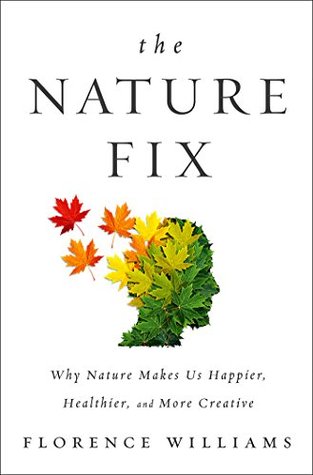More on this book
Community
Kindle Notes & Highlights
Started reading
March 20, 2022
As the writer Annie Dillard once said, how we spend our days is how we spend our lives.
The idea with shinrin yoku, a term coined by the government in 1982 but based on ancient Shinto and Buddhist practices, is to let nature into your body through all five senses,
he believes that because humans evolved in nature, it’s where we feel most comfortable, even if we don’t always know it.
When we are relaxed and at ease in our environment, our parasympathetic system—sometimes called the “rest and digest” branch—kicks in. This is why food tastes better in the outdoors, explains Miyazaki.
A young psychologist named Roger Ulrich was curious why so many Michigan drivers chose to go out of their way to take a tree-lined roadway
The subjects assigned to nature showed higher alpha wave activity, a wavelength associated with relaxation, meditation and increased serotonin.
Dirt can heal: in two separate experiments in England and the United States in 2007 and 2010, the mice lucky enough to be exposed to a common soil bacterium, Mycobacterium vaccae, performed better in a maze, showed less anxiety and produced more serotonin, a neurotransmitter many scientists think is associated with happiness.
“In fact,” he said, “I use a humidifier with cypress oil almost every night in the winter!” You don’t need to harvest your own; he said standard health-store aromatherapy oils should do the job.
“If you have time for vacation, don’t go to a city. Go to a natural area. Try to go one weekend a month. Visit a park at least once a week. Gardening is good. On urban walks, try to walk under trees, not across fields. Go to a quiet place. Near water is also good.”
Attention is our currency, and it’s precious.
Perhaps what matters is not the source of the stress but the ability to recover from it.
Studies show that when people walk in nature, they obsess over negative thoughts much less than when they walk in a city.
Trees, too, have long been venerated as guardians of people and villages.
Astonishingly, the human nose can detect 1 trillion odors, including many we don’t even realize we are detecting. It’s well known that women living together in dorm rooms are able to synchronize their menstrual cycles; the reason is they are nasally detecting each other’s pheromones. Women may have a keener sense of smell than men, and it sharpens during pregnancy, when they must be alert to subtle hazards.
No wonder, then, that when something smells really great we get happy. It’s as though we’ve momentarily stepped through the wardrobe.
SMELLS HOLD POWER over us because the nose is a direct pathway to the brain.
This is unnerving, because particulate pollution is all around us. It’s very likely a strong factor in why going to the woods makes us feel better and more cognitively nimble.


